Vocabulario
inglés (UK) – Ejercicio de verbos
-
 ES
español
ES
español
-
 AR
árabe
AR
árabe
-
 DE
alemán
DE
alemán
-
 EN
inglés (US)
EN
inglés (US)
-
 ES
español
ES
español
-
 FR
francés
FR
francés
-
 IT
italiano
IT
italiano
-
 JA
japonés
JA
japonés
-
 PT
portugués (PT)
PT
portugués (PT)
-
 PT
portugués (BR)
PT
portugués (BR)
-
 ZH
chino (simplificado)
ZH
chino (simplificado)
-
 AD
adigué
AD
adigué
-
 AF
africaans
AF
africaans
-
 AM
amhárico
AM
amhárico
-
 BE
bielorruso
BE
bielorruso
-
 BG
búlgaro
BG
búlgaro
-
 BN
bengalí
BN
bengalí
-
 BS
bosnio
BS
bosnio
-
 CA
catalán
CA
catalán
-
 CS
checo
CS
checo
-
 DA
danés
DA
danés
-
 EL
griego
EL
griego
-
 EO
esperanto
EO
esperanto
-
 ET
estonio
ET
estonio
-
 FA
persa
FA
persa
-
 FI
finlandés
FI
finlandés
-
 HE
hebreo
HE
hebreo
-
 HI
hindi
HI
hindi
-
 HR
croata
HR
croata
-
 HU
húngaro
HU
húngaro
-
 HY
armenio
HY
armenio
-
 ID
indonesio
ID
indonesio
-
 KA
georgiano
KA
georgiano
-
 KK
kazajo
KK
kazajo
-
 KN
canarés
KN
canarés
-
 KO
coreano
KO
coreano
-
 KU
kurdo (kurmanyi)
KU
kurdo (kurmanyi)
-
 KY
kirguís
KY
kirguís
-
 LT
lituano
LT
lituano
-
 LV
letón
LV
letón
-
 MK
macedonio
MK
macedonio
-
 MR
maratí
MR
maratí
-
 NL
neerlandés
NL
neerlandés
-
 NN
nynorsk
NN
nynorsk
-
 NO
noruego
NO
noruego
-
 PA
panyabí
PA
panyabí
-
 PL
polaco
PL
polaco
-
 RO
rumano
RO
rumano
-
 RU
ruso
RU
ruso
-
 SK
eslovaco
SK
eslovaco
-
 SL
esloveno
SL
esloveno
-
 SQ
albanés
SQ
albanés
-
 SR
serbio
SR
serbio
-
 SV
sueco
SV
sueco
-
 TA
tamil
TA
tamil
-
 TE
telugu
TE
telugu
-
 TH
tailandés
TH
tailandés
-
 TI
tigriña
TI
tigriña
-
 TL
tagalo
TL
tagalo
-
 TR
turco
TR
turco
-
 UK
ucraniano
UK
ucraniano
-
 UR
urdu
UR
urdu
-
 VI
vietnamita
VI
vietnamita
-
-
 EN
inglés (UK)
EN
inglés (UK)
-
 AR
árabe
AR
árabe
-
 DE
alemán
DE
alemán
-
 EN
inglés (US)
EN
inglés (US)
-
 EN
inglés (UK)
EN
inglés (UK)
-
 FR
francés
FR
francés
-
 IT
italiano
IT
italiano
-
 JA
japonés
JA
japonés
-
 PT
portugués (PT)
PT
portugués (PT)
-
 PT
portugués (BR)
PT
portugués (BR)
-
 ZH
chino (simplificado)
ZH
chino (simplificado)
-
 AD
adigué
AD
adigué
-
 AF
africaans
AF
africaans
-
 AM
amhárico
AM
amhárico
-
 BE
bielorruso
BE
bielorruso
-
 BG
búlgaro
BG
búlgaro
-
 BN
bengalí
BN
bengalí
-
 BS
bosnio
BS
bosnio
-
 CA
catalán
CA
catalán
-
 CS
checo
CS
checo
-
 DA
danés
DA
danés
-
 EL
griego
EL
griego
-
 EO
esperanto
EO
esperanto
-
 ET
estonio
ET
estonio
-
 FA
persa
FA
persa
-
 FI
finlandés
FI
finlandés
-
 HE
hebreo
HE
hebreo
-
 HI
hindi
HI
hindi
-
 HR
croata
HR
croata
-
 HU
húngaro
HU
húngaro
-
 HY
armenio
HY
armenio
-
 ID
indonesio
ID
indonesio
-
 KA
georgiano
KA
georgiano
-
 KK
kazajo
KK
kazajo
-
 KN
canarés
KN
canarés
-
 KO
coreano
KO
coreano
-
 KU
kurdo (kurmanyi)
KU
kurdo (kurmanyi)
-
 KY
kirguís
KY
kirguís
-
 LT
lituano
LT
lituano
-
 LV
letón
LV
letón
-
 MK
macedonio
MK
macedonio
-
 MR
maratí
MR
maratí
-
 NL
neerlandés
NL
neerlandés
-
 NN
nynorsk
NN
nynorsk
-
 NO
noruego
NO
noruego
-
 PA
panyabí
PA
panyabí
-
 PL
polaco
PL
polaco
-
 RO
rumano
RO
rumano
-
 RU
ruso
RU
ruso
-
 SK
eslovaco
SK
eslovaco
-
 SL
esloveno
SL
esloveno
-
 SQ
albanés
SQ
albanés
-
 SR
serbio
SR
serbio
-
 SV
sueco
SV
sueco
-
 TA
tamil
TA
tamil
-
 TE
telugu
TE
telugu
-
 TH
tailandés
TH
tailandés
-
 TI
tigriña
TI
tigriña
-
 TL
tagalo
TL
tagalo
-
 TR
turco
TR
turco
-
 UK
ucraniano
UK
ucraniano
-
 UR
urdu
UR
urdu
-
 VI
vietnamita
VI
vietnamita
-

listen
He is listening to her.
escuchar
Él la está escuchando.
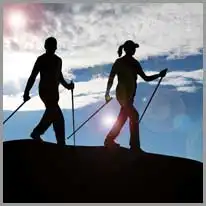
move
It’s healthy to move a lot.
mover
Es saludable moverse mucho.

finish
Our daughter has just finished university.
terminar
Nuestra hija acaba de terminar la universidad.
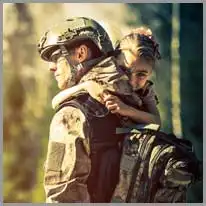
return
The father has returned from the war.
regresar
El padre ha regresado de la guerra.
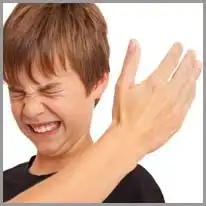
beat
Parents shouldn’t beat their children.
golpear
Los padres no deben golpear a sus hijos.

stand up for
The two friends always want to stand up for each other.
defender
Los dos amigos siempre quieren defenderse mutuamente.
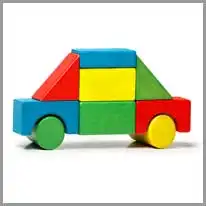
simplify
You have to simplify complicated things for children.
simplificar
Hay que simplificar las cosas complicadas para los niños.
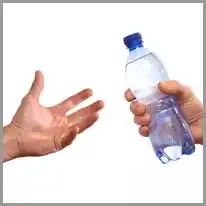
need
I’m thirsty, I need water!
necesitar
¡Tengo sed, necesito agua!

buy
They want to buy a house.
comprar
Quieren comprar una casa.
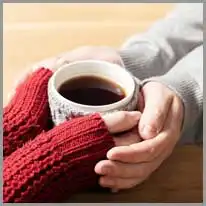
touch
He touched her tenderly.
tocar
Él la tocó tiernamente.

start
School is just starting for the kids.
empezar
La escuela está a punto de empezar para los niños.

